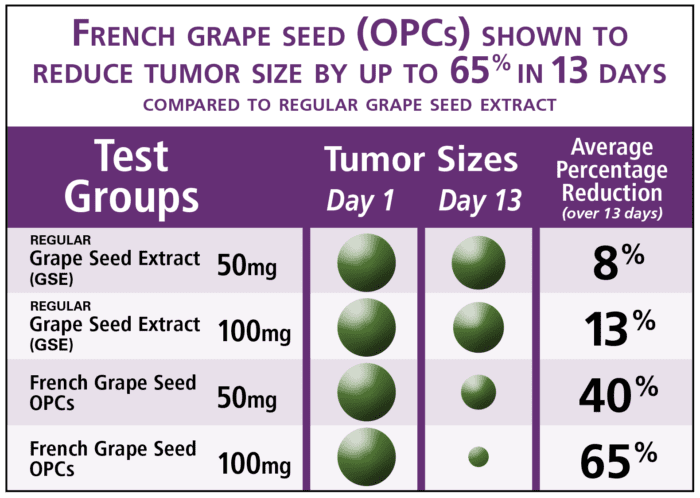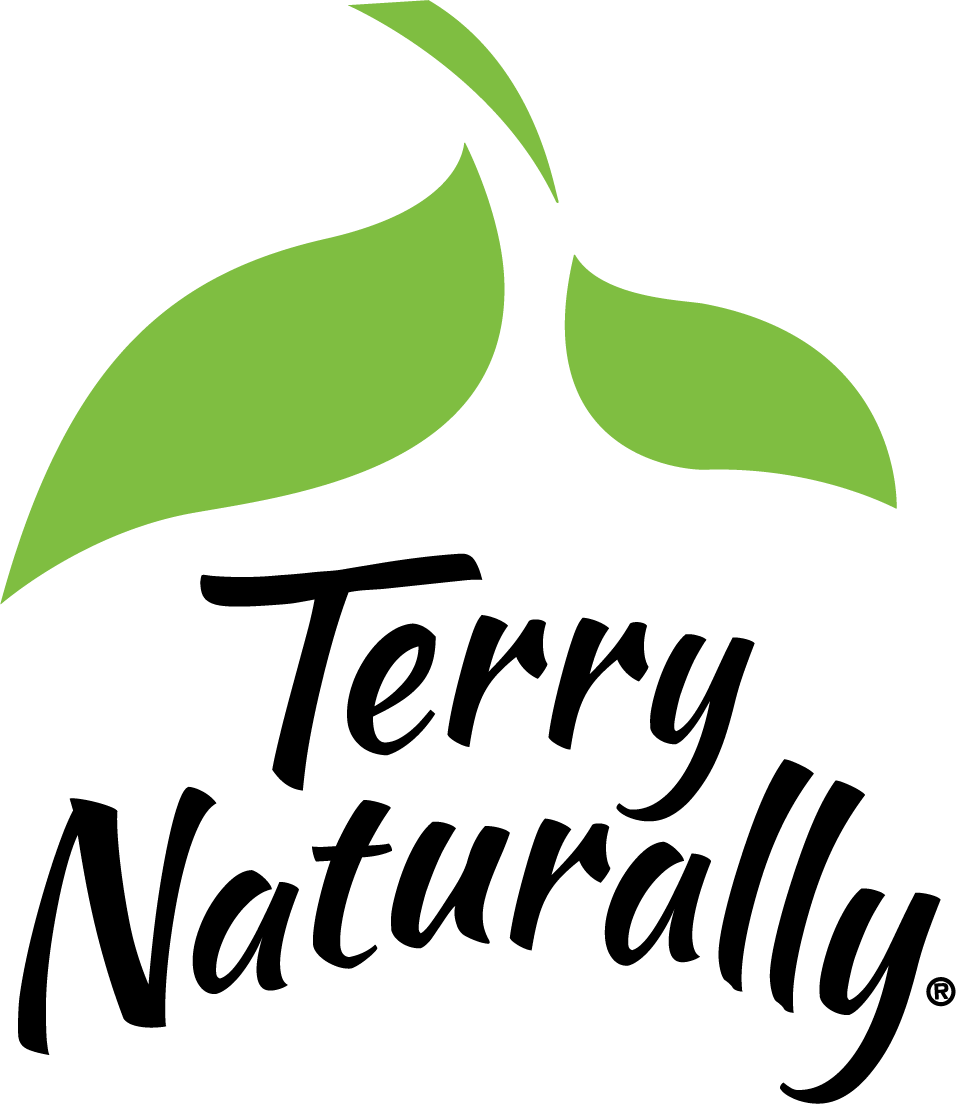A healthy, cancer-preventing diet, backed with a regimen of natural plant compounds, is a far more effective and incredibly less costly way to prevent tumor formation and fight the spread of cancer than conventional care alone.
The top two natural medicines I would suggest for fighting cancer are curcumin and grape seed extract. They are an amazing pair working along two different pathways; fat soluble for curcumin, and water soluble for grape seed extract. And the impact they can make together on your health is virtually miraculous.
Turmeric (Curcuma longa) has been consumed as food for over 5,000 years in India and Asia. While turmeric is an excellent spice, the curcuminoids extracted from turmeric are a more powerful, clinically proven medicine.
Curcumin neutralizes unstable free radicals that steal electrons from neighboring molecules, and stops them from creating a cascade of cellular damage. It also inhibits inflammatory markers in your body to prevent tissue degradation.
Curcumin has been shown to prevent the changes that cause normal cells to become cancerous, stop tumor formation, and stop cancerous cells from migrating to other parts of the body (known as metastasis). Published studies on curcumin’s anticancer activity (so far) have found that it can suppress breast, prostate, liver, skin, colon and lung cancer cells.
Curcumin Must Be Absorbed to Be Useful
One of the challenges of using curcumin for cancer prevention and treatment is that not all curcumin extracts are easily absorbable into the body. Blending curcumin extract with turmeric essential oil enhances absorption and provides the
additional benefits of ar-turmerone, a compound in the oil.
Curcumin Makes Chemotherapy More Effective
There is massive potential for curcumin used in conjunction with conventional treatment. For example, research shows that curcumin (BCM-95) sensitizes human colon cancer cells that would otherwise resist chemotherapy treatment. In some cases the tumor recurrence rates can be as high as 50 to 60 percent. But curcumin boosted the effectiveness of
the chemotherapy drug, 5-Fluorouracil (5-FU) against cancer stem cells.
The potential for curcumin to make a difference in cancer treatment and recovery is profound. As cancer cells become more resistant to chemotherapy, and people have to suffer through higher (and even more toxic) levels of the treatment, the adverse effects can be devastating. However, with curcumin, the results of conventional cancer treatment could be more effective at a lower dose and cause significantly fewer side effects.
Curcumin Protects the Body During Cancer Treatment
In a clinical study, curcumin alleviated side effects of one of the most common treatments for prostate cancer, external beam radiotherapy (EBRT)—the use of radiation to destroy tumors and cancer cells. This form of prostate cancer therapy can be extremely difficult for the patient. It’s often accompanied by many adverse effects, including sexual dysfunction, digestive problems, and urinary tract pain and loss of control. The higher the dosage of radiation, the more effective it is at killing cancer cells, but the risk of adverse effects grows as well. Because of this, doctors must often use less radiation to limit side effects. Unfortunately, that makes the treatment less effective.
Researchers tested the ability of curcumin to prevent the side effects of ERBT treatment in men with prostate cancer. Patients took three grams of curcumin (BCM-95, 1000 mg, three times daily) or a placebo beginning one week before
radiotherapy until the completion of the treatment. Each curcumin capsule contained a full spectrum of curcuminoids: curcumin, demethoxycurcumin, bisdemethoxycurcumin, and essential oil of turmeric.
By the end of the 20-week period, the most dramatic difference between the curcumin group and the placebo group was in urinary symptoms. The curcumin group saw as much as a 50 percent reduction in serious side effects from the radiation. The researchers also noted that the use of the curcumin did not interfere with the efficacy of the radiation treatments.
A second, similar clinical study found that while prostate-specific antigen levels dropped in both the curcumin and placebo groups, only the curcumin group saw a higher, total antioxidant capacity. That means curcumin is helping to preserve the body’s own defenses, even under the extreme stress of cancer and radiation treatment.
Additionally, curcumin slows tumor growth and activates the signals in the body that lead to cancer cell death, called “apoptosis.” Curcumin can also reduce the multitude of conditions that can lead to cancer: inflammation, oxidation, DNA damage, and the cell-signaling that creates the susceptibility to tumors and the spread of the disease.
Curcumin fights cancer in other ways as well. It reawakens the body’s own “sleeping genes” that help us naturally resist the development of cancer and the spread of tumors.
French Grape Seed: Stops Cancer in its Tracks
Grapes are one of the most commonly consumed fruits in the world. They are an excellent source of healthy compounds. Wine has been shown to help protect against the oxidative stresses of aging in studies of “the French Paradox.” But when it comes to cancer-fighting power, the seeds of the grapes—the part of the fruit that nobody wants to eat—is really unbeatable.
That’s due to compounds in grape seed called oligomeric proanthocyanidins or “OPCs.” These OPCs can prevent the formation, growth, and spread of tumor cells. But not all OPCs are alike, so you have to be careful about which kind you select.
Some OPCs are tannins, polyphenols that are too large for the digestive system to effectively absorb. What you want to look for is tannin-free French grape seed extract that is standardized for OPCs that are 100 percent absorbable.
In fact, OPCs from grape seed have been shown to be incredibly effective fighting tumor formation, cancer growth, and chemo-resistant cancer stem cells.
Stops Cancer from Returning
One of the studies of French grape seed OPCs examined the ways that they could stop cancer from recurring due to lingering cancer stem cells. Researchers at Baylor found that the French grape seed extract (VX1) stopped the regeneration of cancer stem cells by blocking a specific pathway in the body, abbreviated as “HIPPO-Yap.” It actually prevented the ability of tumor cells to grow and spread, and eventually, this kills them altogether. This is an effect not seen with conventional drugs, so these results show the potential for OPCs from grape seed to do something completely unique. In this case, the number of viable cells exposed to the extract declined by 70 percent. Further study using an animal model showed that the VX1 extract suppressed tumor growth by up to 90 percent.
Potentially Improves Chemotherapy
One of the biggest barriers to conventional cancer treatment is that cancer cells become resistant to chemotherapy drugs. Trying to overcome that with higher dosages isn’t always an option because of the terrible side effects, including some
that are lethal. But like curcumin, French grape seed may alleviate that. Another scientific study found that OPCs from French grape seed slowed the growth of resistant cancer cells and inhibited the proteins that would otherwise help cancer cells thrive. This means that the grape seed extract could be part of an adjunct therapy to chemotherapy in patients with colorectal cancer and make those drugs more effective at lower dosages.
OPC Absorption is Critical
Other research tested grape seed OPCs from French grape seed against a plain, or “unfractionated” grape seed extract that was not tannin-free, nor specifically standardized for OPCs. One of the insights garnered by this research was not just how the OPCs affect cancer-related genes and stop the cancer cell growth cycle, but how much more effective the smaller-sized (low molecular weight) OPCs were in comparison with the larger OPCs from a standard grape seed extract.
The small OPCs were shown to target specific microRNAs—in this case, the microscopic engineers that replicate cancer cells—and suppress cancer by directly inducing cancer cell death, or apoptosis. It also boosted levels of tumor suppressor genes, downregulated tumor promoting genes, and prevented the migration of cancer cells.
Although this research focused on colorectal cancer, there are similar types of activity across nearly all kinds of malignancies. Researchers found that the grape seed worked along so many pathways that in their study they mention, “No single clinical therapeutic has the ability to effectively block multiple oncogenic (cancer creating) pathways.”
The tannin-free OPCs from French grape seed extract were more absorbable than the large OPCs from unfractionated grape seed extract, the botanical ingredient was much more effective at tumor reduction. In just 13 days, OPCs reduced tumor size by 65 percent. Even at half the dosage—these OPCs reduced tumor size by 40 percent. Compared to standard grape seed extract at only 13 percent and 8 percent, respectively, it shows how much of a difference it makes to get a tannin-free grape seed extract with absorbable OPCs that can reach their full potential. Additionally, there were no harmful effects on healthy cells—these actions were targeted to cancer cells only.

Curcumin and French Grape Seed Fight Cancer Together
But, I think the most exciting work so far is the research that shows how strong two botanicals—curcumin and French grape seed—are when they are combined.
In a scientific study, researchers found that together, grape seed OPCs and curcumin work along multiple pathways in the body to reduce inflammatory damage to healthy DNA, stop cancer cells from replicating, and prevent the growth and development of tumors. What’s interesting here is that these two botanical ingredients work along differing cancer-fighting paths, and because of this, they can cover more ground in the battle against cancer than either one could separately.
Curcumin and Grape Seed: The Future of Cancer Treatment
This protocol of botanical ingredients is an excellent “one-two punch” for knocking out cancer. The French grape seed is water soluble—it absorbs quickly and works fast. The curcumin is fat soluble and remains in the body longer. And both may be an excellent addition to standard therapies and actually make them more effective by overcoming chemo-resistant tumors.
And that is a future we’d all like to see.
To stop cancer, I recommend a combination of Curcumin (Curcuma longa) Rhizome Extract, phospholipids, turmeric essential oil, supplying pure curcuminoids, French Grape (Vitis vinifera) Seed Extract standardized to contain ≥99% polyphenols and ≥80% OPCs
(Tannin Free).
